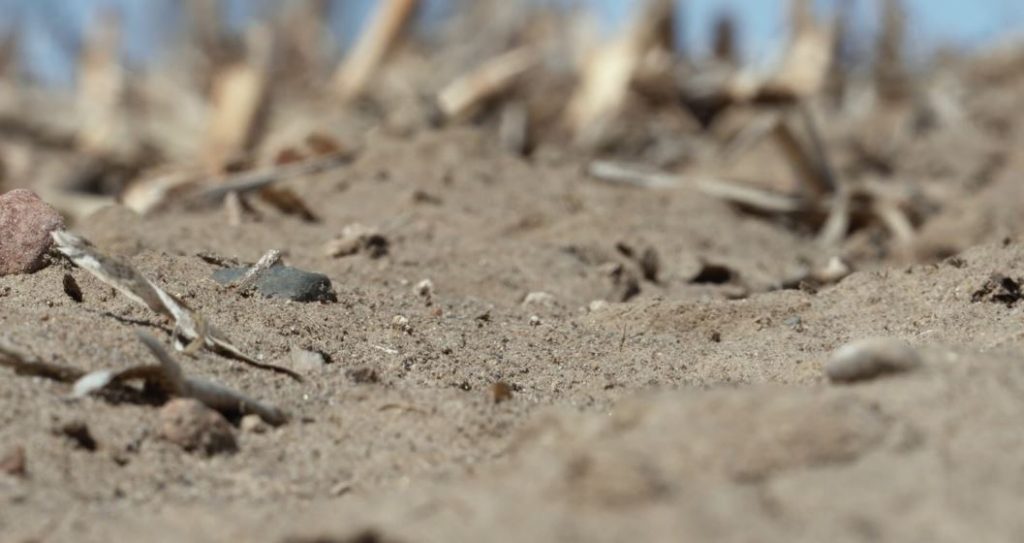
Garden and farming can depend on Iowa soil temps. They affect planting, seed germination, and cycles of crop development. Regular updates from sites like Iowa State University Extension and IowaWeather.com help farmers make wise plans.
| Soil Temp Information | Details |
|---|---|
| Current Temps | Varies by region, typically between 45°F to 60°F |
| Ideal Planting Temp | Corn: 50°F, Soybeans: 55°F |
| Monitoring Resources | IowaWeather.com, ISU Extension |
| Influencing Factors | Weather, soil moisture, time of day |
| Website for Updates | IowaWeather.com |
Value of Land Temperature
Planting timing is hence determined by soil temperature. Correct soil temperature guarantees successful seed germination. While soybeans thrive around 55°F, corn depends the soil to be roughly 50°F. Monitoring soil temps gives gardeners and farmers the assurance they need to plant when best.
Weather’s effect on soil temperatures
Temperature of soil is strongly influenced by the weather. Sunlight, air temperature, and moisture content all affect soil heating. While sunny days can swiftly increase warmth, cold evenings limit soil warming. Iowa’s farmers pay great attention to these elements in spring, when choosing when to start crops.
Seasonal Variations in Soil Temperature Patterns
The seasons affect Iowa’s soil temperatures. Higher temperatures brought on by spring let farmers begin their planting season. Summer helps to maintain soil temps, hence supporting crop development. Fall slows down soil processes and provides cooling. Effective planting and harvesting depend on constant tracking of these changes.
Instruments for Calculating Soil Temperatures
Farmers assess soil temps using thermometers, sensors, and web applications. For planning, Iowa State University Extension provides soil temperature approximations. Real-time data from Mesonet’s Ag Climate program lets farmers modify their planting depending on present circumstances.
Different Crops: Soil Temperatures
Every crop requires different soil tempers. Soybeans demand 55°F or above; corn calls for 50°F soil. Cool-season crops like lettuce can flourish in colder ground. Knowing these temperature requirements helps farmers to plant with better results and smaller environmental impact.
Nutrient Availability and Soil Temp
Soil temperature influences nutrient release. Warmer soil increases microbial activity, hence improving availability of nitrogen and phosphorous. Cold soil delays this process, so limiting nutrients. Monitoring soil temperature guarantees that crops receive necessary nutrients, therefore encouraging development right from the beginning.
The part moisture plays in soil tempers
Stability of temperature depends on soil moisture. Wet ground cools and warms more slowly. Because soil stays cooler following rain, seed development may be impacted. To maximize the performance of their crops, farmers should keep an eye on temperature as well as moisture when deciding when to plant.
Soil temperature and pest control
Furthermore affecting insect cycles are soil temperatures. Some pests come alive at particular soil temps. Early insect activity in warmer soil can result from Monitoring soil temperatures helps farmers be ready for insect problems by means of remedies meant to safeguard crops during the growing season.
Soil Temperature and Root Conditions
For best growth, root systems require constant temperatures. Either cold or hot soil can harm roots. By means of temperature control, farmers can produce conditions favoring root health. Stronger plants with improved water absorption follow from good soil temperatures, which are necessary for the success of crops.
Getting ready for temp fluctuations in Iowa
The temperature in Iowa can change rather suddenly. Maintaining current helps farmers react to unexpected temperature fluctuations. Real-time data from tools like IowaWeather.com help to promote wise planting and pest control choices. Changing with the seasons produces stronger and healthier food.
FAQs
1. What is the ideal soil temperature for planting corn in Iowa?
Corn requires a soil temperature of at least 50°F for optimal germination.
2. Where can I check current soil temps in Iowa?
IowaWeather.com and Iowa State University Extension provide real-time soil temperature data.
3. How does soil temperature affect crop growth?
Soil temperature impacts germination, root health, and nutrient availability for crops.
4. Why does soil moisture affect temperature?
Wet soil heats and cools more slowly than dry soil, influencing seed growth and germination.
5. How do soil temps impact pest activity?
Certain pests become active at specific soil temperatures, affecting crops in warmer soil.




